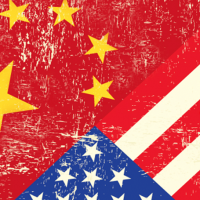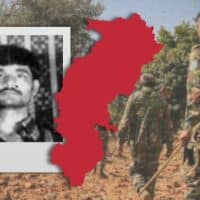-
The anointed and the annihilators: Trump’s peace candidacy and his apostles in Tel Aviv and Rawalpindi
Benjamin Netanyahu of Israel and Pakistan’s General Asim Munir—have found common cause in nominating Donald J. Trump for the Nobel Peace Prize.
-
Who says a chicken feather can’t fly up to Heaven?: The Twenty-Eighth Newsletter (2025)
China showcases a number of promising developments in the construction of socialism–though not without challenges and contradictions.
-
Vilifying the Nehru-Mahalanobis strategy
It is very important to distinguish between the Left criticism and the neoliberal criticism of the dirigiste strategy.
-
China strikes Diabetes
Diabetes is a silent epidemic, causing death and suffering on an unimaginable scale.
-
China is not a monolith
The Communist Party and socialist construction.
-
The New Silk Road and the threat to American domination
The little-reported opening of a major rail link between China and Iran may upend the strategic calculations behind U.S. imperial policy in the Middle East, argues Kevin Crane.
-
Intellectuals and neo-fascism
When Bertolt Brecht wrote: “Hungry man; reach for the book” he was articulating the Left attitude to education, as something that broadens perceptions and hence is essentially emancipatory. The fascist attitude to education is diametrically opposite to this.
-
Kerala: Setting a quiet counter-narrative to growth orthodoxy
The southern state spends nearly 60% of its revenue budget on education, health, pensions, food subsidies and rural development.
-
Conservation Innovations: How sustained resistance is saving one of the Earth’s most critical rainforests from corporate greed
As profit-driven exploitation imperils Indonesia’s Leuser Ecosystem, some unique conservation strategies are working to save it.
-
Arab states express ‘deep concern’ as Iran eyes U.S. bases in West Asia
The IRGC said it has identified and surveilled the bases from which the U.S. attack on Iranian nuclear facilities was launched, affirming its entitlement to respond in self-defense.
-
Despite the pain in the World, socialism is not a distant Utopia: The Twenty-Fifth Newsletter (2025)
Tricontinental is producing a series of regular newsletters in Asia, Africa, and Latin America, building a roadmap that allows us to grasp the rapid changes before us and highlight the movements taking action to reverse the ugliness inflicted upon humanity.
-
Russian and Chinese Military cargo planes shuttling weapons, missiles, supplies into Iran
Russian and Chinese Military Cargo Planes are shuttling “support” to Iran: Weapons systems, air defenses, missiles, and so forth.
-
The Indonesian People’s Movement need to build a political party
The 1998 reform movement (reformasi) that successfully overthrew former president Suharto did not automatically change the political-economic power structure in Indonesia. The political system that was promised to be more democratic was still controlled by the old elite and the owners of capital.
-
Nicaragua and China break ground on landmark Solar project to power water access and energy sovereignty
Nicaragua, with Chinese financing, launches its largest solar plant to date—powering water systems, cutting energy costs, and deepening South-South cooperation on infrastructure for social good.
-
U.S. demands Asian allies prepare for “imminent” war against China
U.S. Defense Secretary Pete Hegseth laid down the law to military allies and partners throughout the Indo-Pacific: “Dramatically escalate your military build-up and put yourselves on a war footing for conflict with China.”
-
Review: ‘My Friend the Terrorist’
The Philippines’ most famous leftist couple is the subject of a stirring new documentary.
-
Is China finally breaking the U.S. stranglehold?
The U.S. is in desperate economic and military “competition” with China and has lost a lot of ground fast.
-
Economics and the concept of progress
THE mercantilists had defined a nation’s prosperity in terms of the amount of precious metals it possessed and a nation’s progress in terms of the increase in its amount of precious metals.
-
After Trump’s Harvard ban, China invites students with offers
Harvard faces legal and political turmoil after Trump revokes its ability to admit foreign students, but China responds with open offers.
-
PUCL condemns the extrajudicial killing of Nambala Keshava Rao and 26 others in Chhattisgarh
The People’s Union for Civil Liberties (PUCL) strongly condemns the extrajudicial killing of Nambala Keshava Rao, General Secretary of the CPI (Maoist), and 26 others, many of whom were Adivasi residents, in an alleged encounter carried out under the guise of counterinsurgency operations in Narayanpur district, Chhattisgarh.





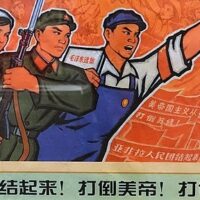
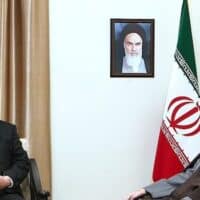



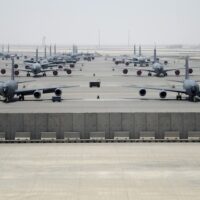

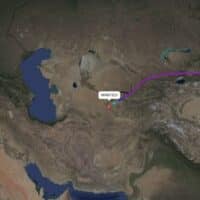

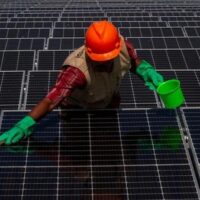
![US Defense Secretary Pete Hegseth delivers his speech during 22nd Shangri-La Dialogue summit in Singapore, Saturday, May 31, 2025. [AP Photo/Anupam Nath]](https://mronline.org/wp-content/uploads/2025/06/d8d41196342825408135009d3484cc5d0bebb8b5-200x200.png)

